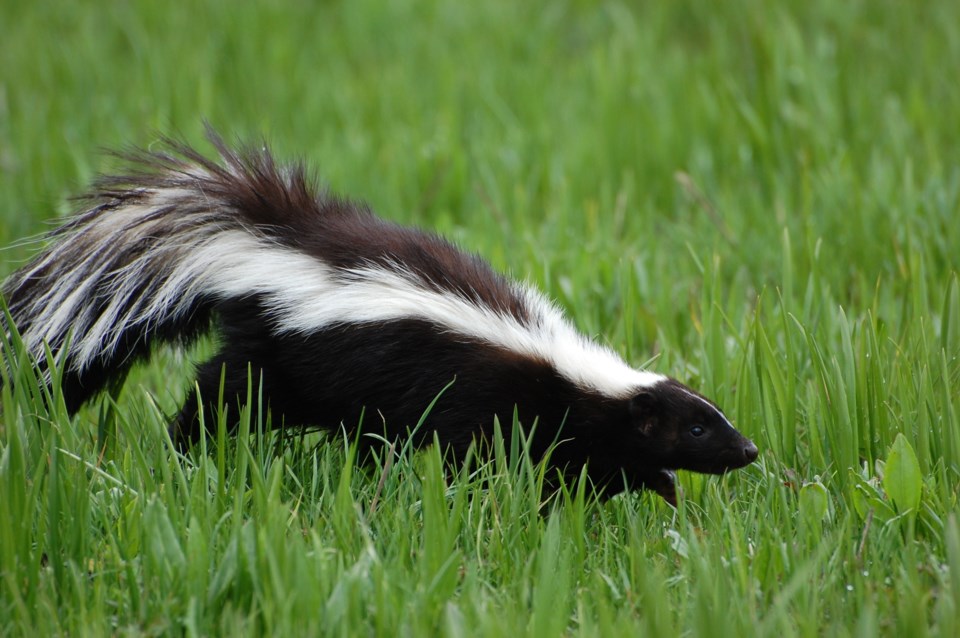Seven poisoned skunks were found in Richmond and have died within the past month.
The skunks found poisoned in Richmond were showing symptoms of seizures, foaming at the mouth, unconsciousness and/or trouble breathing, explained Lesley Fox, executive director of The Fur-Bearers, a wildlife protection organization.
While the poisoned skunks were sent to a wildlife rehabilitation centre, some of the skunks died when they arrived and others had to be euthanized, reads The Fur-Bearers media statement.
The skunks were found on No. 5 Road and in various residential neighbourhoods including:
- 6690 block of Chelmsford Street (near Blundell and Gilbert roads)
- 10300 block of Whistler Place (near Gilbert Road and Gainsborough Drive)
- 4060 block of Regent Street (near No. 1 Road and Regent Street)
- 8300 block of Saunders Road (near No. 3 Road and Saunders Road)
Fox told the Richmond News they do not know if someone is trying to kill the skunks deliberately or if they were poisoned from eating sick rodents or accessed poison bait stations.
She added that poisoning "targeted animal" can affect other species including birds and possibly pets in the community.
“Dogs, cats, other wildlife, and children could all be at risk if poisons are being left accessible to skunks or if baits are being used,” said Fox.
"While only skunks are reported right now, it doesn’t mean other animals aren’t suffering. We are asking anyone using poisons to remove them and consult humane wildlife removal experts like those certified by the BC SPCA’s AnimalKind program.”
Using poison to kill skunks is considered an offence under B.C.'s Wildlife Act, she added.
Under the legislation, Fox said, skunks are not a highly-valued species and are considered "pests", which places them outside the jurisdiction of the BC Conservation Officer Service (COS), BC SPCA, the City of Richmond and the federal government.
"This is extremely short-sighted though because poison proliferates through ecosystems -- birds, other mammals, even pets or children could be affected," said Fox.
Richmond residents need to secure their garbage and compost to avoid wildlife encounters.
City of Richmond spokesperson Clay Adams confirmed with the News that they are waiting for toxicology results to “confirm if the skunks were, in fact, victims of poison or another issue.”
“The city does not support the use of rodenticide (rat poison) to deal with rodents or pests of any kind,” said Adams.
“Rodenticides are banned on city-owned property, and we encourage private land owners and businesses to do likewise.”
People who experience rodents or pests issues, he added, should seek licensed professionals to “assist them using humane methods.”



